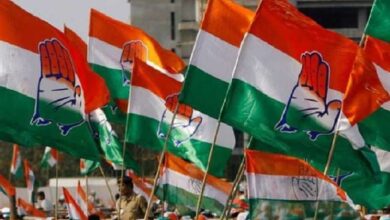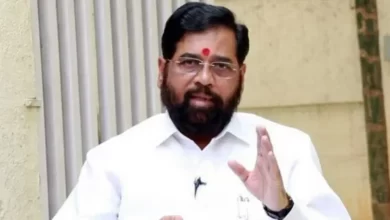The Tragedy of Poverty and the Scope of Accountability

[ad_1]
We become so self-centred and self-centered about our success that we forget about social concerns.
Satyendra Srivastava
We become so self-centred and self-centered about our success that we forget about social concerns. Trends like the rich people becoming overly self-centred, the benefits of development reaching only a few and the exclusion of a large population from it, raise big questions on our sociality and sensitivity.
Former President APJ Kalam dedicated his famous book ‘Ignited Minds’ to a class XII student, which ‘ignited’ the minds of children. On 11 April 2002, Kalam was the chief guest at a school in Gujarat. During a program in it, the question was asked- ‘Who is our enemy?’ The answer which was agreed by almost everyone, was given by Snehal that ‘Poverty is our biggest enemy’. The meaning of this answer can be easily understood in the context of the lockdown during the Corona period and the changing economic-social environment after that.
The worst effect of the complete ban was on the poor daily wage workers. See the irony that these working people are dying from poverty, disorder, extreme insensitivity of the government and very rich people instead of the Kovid-19 pandemic. We are reminded of Phanishwar Renu’s ‘Maila Aanchal’, in which people die of poverty and backwardness instead of malaria. Renu writes about Dr Prashant – ‘The doctor has caught the root of the disease, poverty and poverty are the two biggest germs of this disease.’
How contradictory is this in itself that the poor-working class, which has contributed the most in the building of this country with its labor, is the most afflicted and neglected in today’s time. We saw that during the lockdown, due to the closure of their business, these people became helpless and were forced to go to their home states on foot or other unsafe vehicles due to non-fulfillment of even the minimum requirements. During this, sometimes a train accident, sometimes a road accident, and sometimes he had to lose his life after getting tired while walking. Their employers and our state governments could not assure them that they would be provided with essential items. The tragic condition of these workers is not only a political failure, but also our moral failure.
Premchand’s ‘Godan’ (1936) If there is a tragic saga of a farmer turning into a laborer, then today’s post-globalized economy is also a saga of the extreme exploitation of these laborers, where everything is evaluated only on the basis of economic benefits. Is. The laborers who build luxurious buildings, hospitals, hotels, roads, bridges etc. with their labor, are doomed to live in inhuman conditions due to the money-lust and insensitive attitude of the industrialists. We often quote Mahatma Gandhi that ‘the industrialist considers himself to be a trustee and a servant of the poor’, but in practice the relation of industrialist and worker appears to be that of master and servant.
A recent study has shown that 58 percent of India’s wealth is with the richest one percent of this country, while on the other hand 21.9 percent of the people are living below the poverty line. These figures are sufficient to show the sharp disparity between rich and poor. The common man of this country can only imagine what would be the very luxurious standard of living of these one percent people! Sadly, this disparity is getting deeper every year.
Exposing this contradictory character of development, Adam Gondvi wrote – ‘The cloud rains on the lake in our country, the farm craves water in our country’. Why don’t the policy makers of our country make their policies keeping the person standing at the last end of the society at the center, which people like Swami Vivekananda and Gandhi called the ‘backbone’ of India. During a discussion in January 1902, Vivekananda had said – ‘No one thinks about the poor people of this earth. They are the backbone of this country, who do their hard work in the production of food grains and other manual labor. If they stop working even for a day, there will be huge chaos.’
It is true that the government does not have a magic wand, but the government can show a way to reduce this acute disparity by taking concrete and serious steps. All the wealthy sections of this country should voluntarily cooperate in this great mission of the government, otherwise all our development will be one-sided and one-sided. Its gruesome form was seen in the second wave of Corona, in which not only humans died, but humanity also died. It is in itself the culmination of ostentation and immorality that people who portray poverty in films become billionaires in a few years, while the poor remain there. That is, the poor of this country are just a ladder for the rich to move forward. Excessive prosperity and personal success in the absence of social concern makes a person very immoral.
Photographer Kevin Carter became a celebrity overnight by photographing a starving little girl (later identified as a boy named Kong Nyong) in front of a vulture in 1993’s ‘The Vulture and the Little Girl’ of famine-stricken Sudan. And for this he also received the Pulitzer Prize. But a few months later, Kevin Carter committed suicide, because he could not bear the guilt as to why he thought it necessary to take photos instead of saving the girl’s life.
We become so self-centred and self-centered about our success that we forget about social concerns. Tendencies like the rich people becoming too self-centred, the benefits of development reaching only a few people and the exclusion of a large population from it, raises a big question on our sociability and sensibility. Bhim Rao Ambedkar had clearly said that a just society is one in which increasing sense of mutual respect and decreasing sense of humiliation come together to form a compassionate society.
Some philosophical and religious people explain the suffering and struggle of the poor on the basis of the Karma principle of previous birth. The theory of karma is such an incomprehensible enigma, whose logical explanation is hardly available to anyone. Yet such people consider poverty as a ‘divine curse’ and excessive wealth as ‘honour of talent’. People like Lal Bahadur Shastri, APJ Kalam, Ram Manohar Lohia, Nanaji Deshmukh are just a name for him. Whereas in the true sense, these people found the meaning of their work in the service of the very poor, and not in the acquisition of private property. Poverty and hunger is an empirical problem of this world, for which we also have to find a solution in this world. By interpreting it on the basis of the principle of karma, we cannot escape our responsibility.
If we study the history of global epidemics and natural disasters, we will find that most of the deaths due to these are not due to lack of resources, but due to negligence of power and insensitivity of very rich-class. Such tragic installations are not a good sign for any civilized society. The eminent ethicist Peter Singer writes in his article ‘Famine, Affluence and Maralty’ that it is the duty of a prosperous nation or individual to help the poor person or nation, because doing so is not only immoral, but also against humanity. There is also a crime. The message is clear that if humanity is to be saved from extreme poverty caused by this global pandemic, then all of us have to fulfill our responsibility very seriously.
.
[ad_2]






